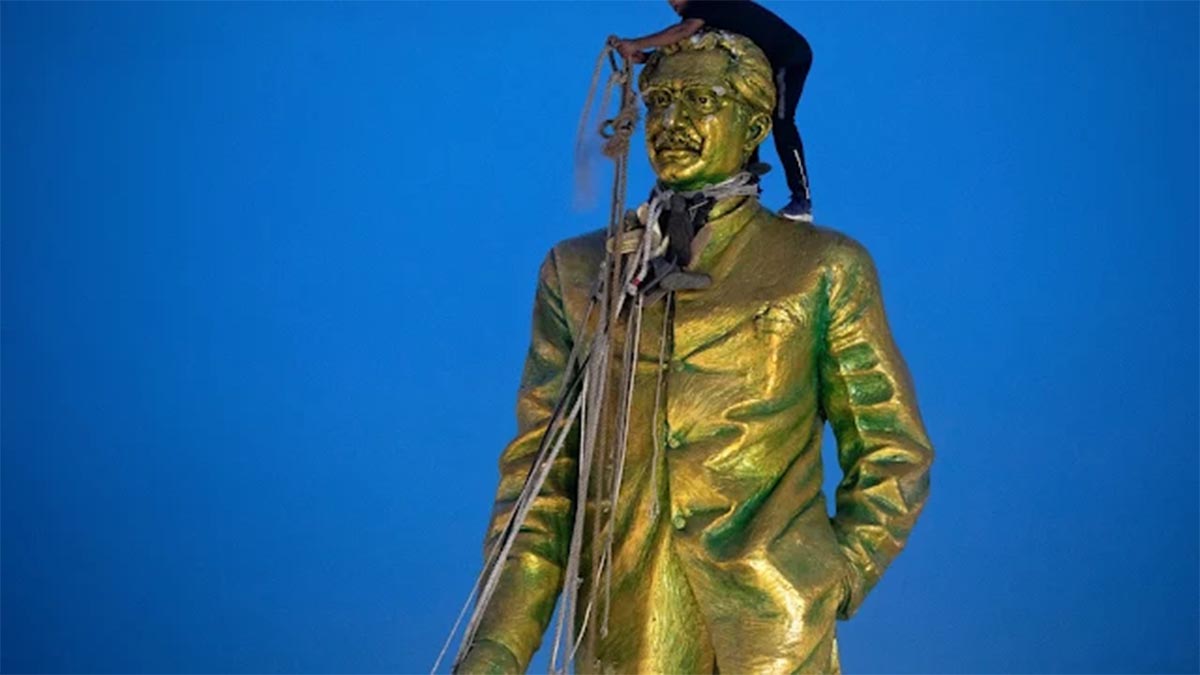The previously controversial reservation system was revoked by the government and later enforced by a High Court ruling, which was ultimately scaled back to a mere 5% by the Supreme Court.
I’ve often stated that while chaos may attract media attention and intrigue experts, it ultimately takes a toll on the nation, with ordinary citizens bearing the brunt of the consequences. The protests currently taking place are often romanticized on social media, but once mass gatherings occur, these movements can be commandeered for other agendas.
We have witnessed this in various instances, including the protests in Egypt’s Tahrir Square, the unrest in Sri Lanka and Pakistan, and now in Bangladesh. The situation is far more complex than it appears.
Is the recent violence and looting in Bangladesh truly an organic student-led movement? This appears to be a coordinated effort, as evidenced by the Prime Minister being forced to flee in just 45 minutes. Instead of rejoicing, we see crowds vandalizing symbols of Bangladesh’s hard-won independence and attacking Hindu minorities and their temples — an unnecessary and troubling development.
It’s clear that Sheikh Hasina lost touch with the reality on the ground and became increasingly unpopular due to her economic policies and heavy-handed governance. This is a recurring issue in our part of the world: a powerful leader can become isolated and above the law, leading to external forces exploiting public dissatisfaction.
We cannot overlook the American approach to regime change — while they may not have succeeded in Russia, they’re striving hard elsewhere. Terms like “democracy,” “rule of law,” and “human rights” come into play.
The issue is not whether we should embrace these ideals but rather how we ensure a true democratic process, one that respects opposition and fosters economic improvement.
Bangladesh has enjoyed impressive economic growth, yet it has largely benefited industries, leaving the youth feeling increasingly suffocated by dwindling job opportunities. In this region, government jobs are highly coveted, and any attempt at implementing quotas or reservations will inevitably please some while alienating many.
In an era of social media, governments must tread carefully; while social media can be a powerful tool, it can also incite chaos when mainstream media is under the control of elites disconnected from the realities faced by the people. One cannot combat an ideological opponent solely with administrative power and policing.
When the public rises up, even law enforcement is likely to disengage, and we’ve seen this in Dhaka, where Sheikh Hasina’s official residence was attacked and looted in a matter of minutes. Is this the transformation we envision? Why was there such a lack of security?
Sheikh Hasina was fortunate to escape the crisis relatively unscathed, and she — or her advisors — should have anticipated the unfolding events. It is crucial for Bangladesh’s political leaders, military, and student community to prevent the current crisis from becoming a permanent rift.
Bangladesh is blessed with intellectuals, political leaders, and social activists dedicated to the country’s welfare. After battling oppression, now is the time to unite in restoring law and order. Honor the sacrifices of those who fought against tyranny and maintained their dignity in the face of adversity. While it is easy to criticize Sheikh Hasina as a despot, attacking symbols of your liberation movement or degrading the legacy of your founding leaders is counterproductive.
I sincerely hope the people of Bangladesh will come together to protect their nation and its rich heritage of peaceful coexistence, resisting the urge to let forces of intolerance and hatred exploit the current crisis. There is an opportunity to reclaim and collectively build your country, preserving its secular and pluralistic legacy.
May peace and stability be restored to Bangladesh, allowing it to thrive once more in tranquility, harmony, and economic prosperity.
Author is Human rights defender
Courtesy: CounterView

